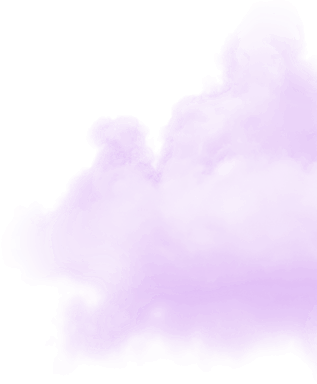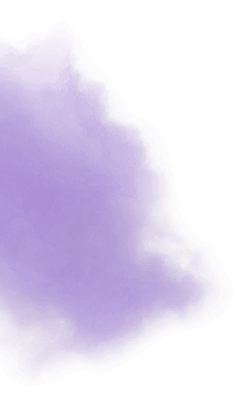Methods to fall asleep fast: effective techniques and solutions
How many of you know every inch of your bedroom ceiling by heart, after all those nights spent lying awake in bed studying the ceiling desperately trying to fall asleep? As nice as it would be to simply have a switch that you could flip to turn yourself off and allow you to recharge your batteries just like we do with our electronic devices, sleep just doesn’t work that way.
We all know someone who is able to slip away into the land of Nod from the moment they turn off the lights and rest their head on the pillow, but for those of us who are less fortunate, it can feel as though we spend more time lying awake on the mattress trying to relax and get to sleep than actually getting restful sleep.
Let’s take a look together at some techniques we can try out to fall asleep fast.
How quickly you fall asleep impacts the quality of your sleep
Getting a good night’s sleep is essential for the body. According to a study published by The Journal of Clinical Endocrinology & Metabolism, even the loss of two hours of sleep a week can lead to a significant increase in daytime drowsiness and psychomotor impairment. This means that going to bed later than usual can have a negative impact on our daily life after we get out of bed, and all that time we spend tossing and turning and counting sheep will come back to bite us! To avoid feeling like unproductive zombies the next day, we need some tricks up our sleeve to lull us into the world of dreams. We want to share with you some of the tips and tricks that will become your new go-to methods to fall asleep fast.
Techniques and solutions to fall asleep fast
If you are looking for an effective technique to fall asleep fast, you need look no further than the following array of ideas to try out! Try them out the next time you go to bed and find out which one is best for you.
1. Try the 4-7-8 breathing technique.
This derives from yogic breathing and is a relaxation technique to help you fall asleep that increases the amount of oxygen in the blood and slows down your heart rate. It can be used as both a remedy to help you fall asleep and as a technique to relax in stressful moments. Here’s how it works:
- Place the tip of your tongue behind your top front teeth against your gums
- Exhale deeply, breathing out all the air from your lungs
- Inhale through the nose, keeping your mouth closed, count to 4 in your head
- Try to hold the air in your lungs, counting to 7 in your head
- Exhale through your mouth, counting to 8 in your head
- Repeat this sequence for a total of three times
2. Use progressive muscle relaxation.
This is a relaxation technique based on alternating between tightening and relaxing your muscles, first proposed by Dr Edmund Jacobson in 1959. Here is an example sequence that can help you as you start out (it should take around 30 minutes). Start from a horizontal position lying face-up and follow the various steps - no need to rush, just concentrate on every single step:
- Point your right toes downwards. Then, spread them out and flex them towards your shin.
- Tighten the muscles of your right calf, as though you were about to stand on your tiptoes, then relax them.
- Tighten both the front and back muscles of your right leg - imagine pulling your heel towards your buttocks. Then relax.
- Repeat the above steps with your left leg.
- Make a tight fist with your right hand and pull it towards your forearm. Relax.
- Flex and straighten your right arm. Relax.
- Repeat the above steps with your left arm.
- Tighten just your gluteal muscles, leaving your legs relaxed. Relax.
- Tighten your abdominal muscles and then relax them.
- Raise your arms and try to bring your forearms together. This will make your pectoral muscles tighten, then relax your arms back down.
- Raise your shoulders up as close to your ears as possible. Then relax your shoulders.
- Tighten the muscles of your mouth, for example by opening your mouth as wide as possible or pressing your lips together. Relax.
- Squint your eyes, then let your eyelids slowly relax down.
- Raise your eyebrows as high as you can (to contract the muscles of your forehead), then relax.
After you have finished all of these steps, remain lying down with all of your muscles relaxed for at least a few minutes to revel in the sensation of deep relaxation, and finish off the exercise by breathing slowly and deeply.
We recommend carrying out this activity at least 2 or 3 times a week, to keep your body and mind relaxed.
3. Relax your body slowly.
This technique is similar to the previous one, and is also used by the U.S. Marines to fall asleep in uncomfortable situations. Starting at the head, relax your muscles slowly one by one: your eyes, mouth, neck, lower your shoulders, then relax your arms, chest, thighs, calves and feet. This will allow your body to relax in a soft flow from your head to your toes; meanwhile, to relax your mind, you can try to focus on something peaceful and pleasant - did someone mention the Caribbean islands?
4. Read a relaxing book.
Ideally a gold-old paper book, since the screen of an electronic device can have the opposite of the desired effect. Books help to free your mind from day-to-day worries and divert your attention towards the story being told. This will help you to disconnect from any problems and sources of daily stress and perhaps even help to give you some fantastical dreams.
5. Keep a journal.
Putting your feelings and thoughts into words on paper can be a very cathartic experience and a way to help you fall asleep faster; all of your worries will move over to the paper, instead of running through your mind in the darkness of the night.
6. Treat yourself to a relaxing bath.
After peacefully warming up your body in the water, the change in temperature when you move to your cooler bedroom will induce your body to sleep while you are perfectly relaxed. This makes soaking in the bath (for at least 30 minutes, perhaps with a few scented candles) a delightful way to relax and ultimately sleep.
7. Listen to relaxing music or sounds.
Relaxing music and sounds at a fairly low volume have been shown to be a worthwhile technique to help you fall asleep. We do recommend though that you set a timer to turn the music or sounds off, so that you can sleep (hopefully very soon after!) in silence, rather than with white noise in the background.
Knowing that you struggle to fall asleep can be a source of stress and anxiety in and of itself, going so far as to cause us to feel apprehensive when bedtime approaches and go to bed already in a state of restlessness, tormented by the fear of not being able to sleep. Trying to force yourself to fall asleep can have entirely the opposite effect and keeps your mind active and restless, preventing you from sleeping soundly. Relaxing in general is therefore an important and effective way to help you fall asleep fast.
Disclaimers
- Dietary supplements are not intended to substitute a varied and balanced diet and should be taken as part of a healthy lifestyle.
- Melatonin contributes towards reducing the time it takes to fall asleep.
References:
- A. N. Vgontzas, E. Zoumakis, E. O. Bixler, H.-M. Lin, H. Follett, A. Kales, G. P. Chrousos, Adverse Effects of Modest Sleep Restriction on Sleepiness, Performance, and Inflammatory Cytokines, The Journal of Clinical Endocrinology & Metabolism, Volume 89, Issue 5, 1 May 2004, Pages 2119–2126, https://doi.org/10.1210/jc.2003-031562
- Rasskazova, Elena, et al. "High intention to fall asleep causes sleep fragmentation." Journal of sleep research 23.3 (2014): 297-303.
- Hauri, Peter J., ed. Case studies in insomnia. Springer Science & Business Media, 1991.
- Haghayegh, Shahab, et al. "Before-bedtime passive body heating by warm shower or bath to improve sleep: A systematic review and meta-analysis." Sleep medicine reviews 46 (2019): 124-135.
- Jacobson, Edmund. "Progressive muscle relaxation." J Abnorm Psychol 75.1 (1938): 18.
- Feng, Fan, et al. "Can music improve sleep quality in adults with primary insomnia? A systematic review and network meta-analysis." International journal of nursing studies 77 (2018): 189-196.


